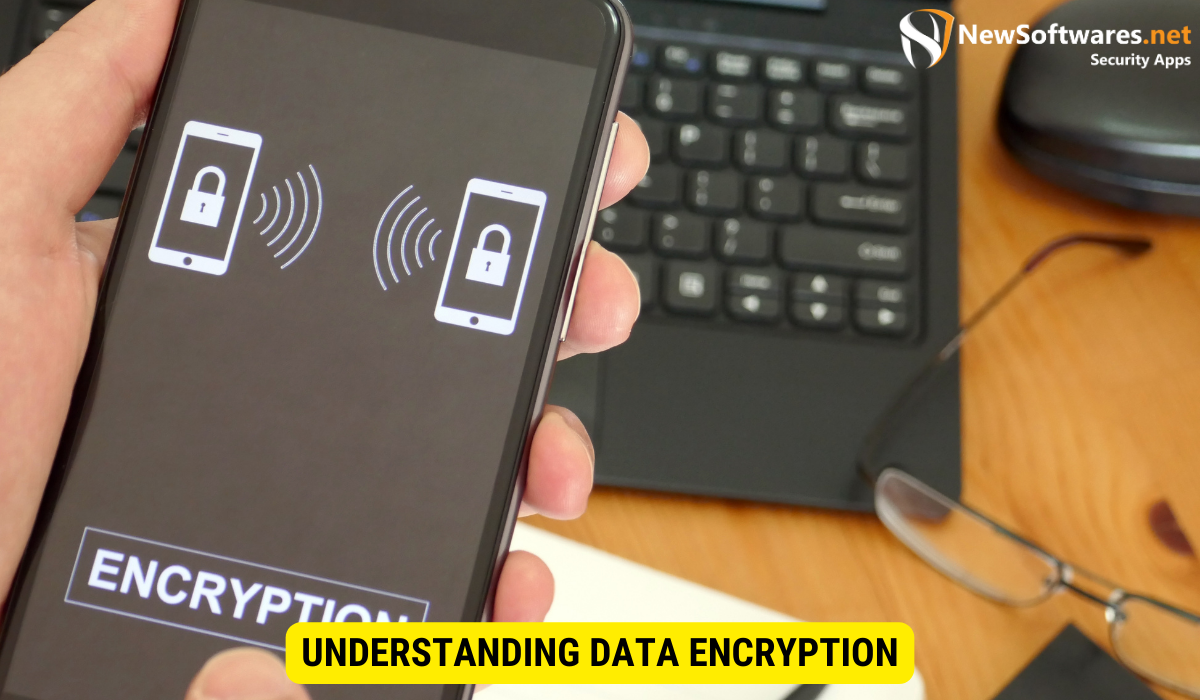Data encryption in computer systems offers enhanced security, compliance with set of laws, and builds trust with customers. It protects sensitive information, prevents unauthorized access, and ensures data confidentiality.
Data encryption plays a vital job in ensuring the security of computer systems. It involves the conversion of plain text information into an unreadable format called cipher text. This process protects sensitive data from unauthorized access and ensures its confidentiality. In this article, we will delve into the various advantages of data encryption in computer systems and how it can enhance security measures.
Understanding Data Encryption

Data encryption is the process of converting simple text data into an encoded form using mathematical algorithms. It provides a layer of protection to protect sensitive information from interception or unauthorized access. The encrypted data can only be decoded or deciphered using an encryption key, which is known only to the intended recipient.
What is Data Encryption?
Data encryption is a method used to transform data into an incomprehensible format, known as cipher text. It ensures data confidentiality and prevents unauthorized parties from accessing sensitive information. The encryption process involves utilizing complex algorithms and encryption keys to convert plain text into an encoded format.
Let’s dive a little deeper into the encryption process. When data is encrypted, it goes through a series of complex mathematical operations. These operations scramble the data, making it unreadable to anyone who doesn’t have the encryption key. The encryption key is a distinctive string of characters that is used to both encrypt and decrypt the data. Without the key, it is virtually impossible to decipher the encrypted information.
There are different types of encryption algorithms that can be used, such as symmetric encryption and asymmetric encryption. Symmetric encryption uses the similar key for encryption and decryption, while asymmetric encryption use a couple of keys – a public key for encryption and a confidential key for decryption. Both types of encryption offer strong security measures, but they are suited for different purposes.
The Role of Data Encryption in Computer Systems
Data encryption plays a vital role in computer systems. It provides security by protecting sensitive information such as personal data, financial transactions, and trade secrets. Encryption safeguards data when it is stored, transmitted, or accessed by users, making it an essential component for maintaining the integrity and confidentiality of computer systems.
When data is stored on a computer or a server, encryption ensures that even if someone gains illegal access to the storage device, they won’t be able to read the encrypted data without the encryption key. This is particularly important for organizations that handle large amounts of sensitive data, such as banks, healthcare providers, and government agencies.
Encryption also plays a vital role to secure data during transmission. When data is sent over the internet or any other network, it can be intercepted by hackers or malicious individuals. However, if the data is encrypted, it becomes extremely difficult for anyone to make sense of the intercepted information. Encryption ensures that even if somebody manages to intercept the data, they won’t be able to decipher it without the encryption key.
Furthermore, encryption is essential for user authentication and securing online transactions. When you enter your credit card information on a website, encryption ensures that your data is protected and cannot be easily stolen by cybercriminals. Encryption also helps in verifying the authenticity of digital certificates, ensuring that you are connecting to a legitimate website and not a malicious imposter.
In conclusion, data encryption is a crucial aspect of modern computer systems. It provides a robust layer of security by transforming data into an unreadable format, safeguarding it from unauthorized access. Whether it’s protecting sensitive personal information or securing online transactions, encryption plays a very important role for maintaining the confidentiality and integrity of data in today’s digital world.
The Importance of Data Encryption
Data encryption offers several advantages in safeguarding computer systems and protecting valuable data. Let’s explore some of the key benefits it provides:
Protecting Confidential Information
Data encryption ensures that secret information remains secure from unauthorized access. By encrypting sensitive data, even if it falls into the wrong hands, it will be practically impossible to read or decipher without the encryption key. As a result, the risk of data breaches and unauthorized disclosures is significantly reduced.
Preventing Unauthorized Access
Data encryption acts as a deterrent against unauthorized access to computer systems. Even if an attacker gains access to the system, encrypted data will remain protected and unreadable. Encryption adds one more layer of security, making it very tricky for hackers to gain access to sensitive information.
Types of Data Encryption
There are two most important types of data encryption commonly used in computer systems:
Symmetric Encryption
Symmetric encryption, also acknowledged as secret key encryption, uses the identical key for both encryption and decryption of data. This key needs to be securely shared between the sender and the recipient. While symmetric encryption is efficient, it does pose challenges in securely exchanging and storing the encryption keyor pass-phrase.
Asymmetric Encryption
Asymmetric encryption, also acknowledged as public-key encryption, uses a duo of keys: a public key and a confidential key. The public key is used for encryption, while the secret key is used for decryption. This type of encryption provides secure communication channels, as the private key is kept confidential by the owner.
Advantages of Data Encryption
Data encryption offers several advantages that enhance the overall security of computer systems. Let’s explore some of these benefits:
Enhanced Security Measures
Data encryption adds second layer of security to computer systems. By encrypting sensitive information, the risk of data breaches and unauthorized access is significantly reduced. Encryption guarantees that even if an attacker gains access to data, it remains unreadable and useless without the encryption key.
Compliance with Regulations
Implementing data encryption measures helps organizations comply with various data protection regulations. Many sectors, like healthcare and finance, have specific guidelines regarding data security. Encryption provides a method for organizations to protect sensitive information and demonstrate compliance with regulations.
Building Trust with Customers
Data breaches can have harsh consequences, including loss of customer trust. By implementing data encryption, organizations demonstrate their commitment to protecting customer information. This builds trust and confidence, fostering strong relationships between businesses and their customers.
Implementing Data Encryption in Your System

Implementing data encryption in your computer system requires careful consideration and planning. Here are some key factors to consider:
Choosing the Right Encryption Software
Selecting the appropriate encryption software is essential for effective data protection. Consider factors like the encryption algorithm used, key management processes, and the software’s track record for security. Choose a way out that aligns with your organization’s needs and requirements.
Best Practices for Data Encryption
To ensure the effectiveness of data encryption, it is important to follow best practices. These include regularly updating encryption protocols, securely storing encryption keys, and using strong passwords. Additionally, access controls and regular security audits can help identify and address any potential vulnerabilities.
Key Takeaways
- Data encryption is the procedure of converting simple text data into an encoded format to protect sensitive information.
- Data encryption ensures data confidentiality and prevents unauthorized access to computer systems.
- There are two major types of data encryption: symmetric encryption and asymmetric encryption.
- Data encryption offers advantages such as enhanced security, fulfillment with regulations, and building trust with customers.
- To implement data encryption in your system, choose the right encryption software and follow best practices.
Frequently Asked Questions
Here are some frequently asked questions about computer system data encryption:
Why is data encryption important?
Data encryption is important because it protects sensitive information from unauthorized access and ensures data confidentiality, integrity, and availability.
What types of data should be encrypted?
Any data that is considered sensitive or confidential should be encrypted. This includes personal information, financial data, trade secrets, and intellectual property.
How does data encryption work?
Data encryption uses complex mathematical algorithms to convert plain text into an encoded format. Encryption keys are used to lock & unlock the encrypted data, ensuring that only authorized users can access the information.
What are the common encryption algorithms?
Some common encryption algorithms include Advanced Encryption Standard (AES), RSA, Triple Data Encryption Standard (3DES), and Blowfish.
Is data encryption sufficient to protect against all security threats?
While data encryption provides a strong layer of security, it is not a standalone solution. It is essential to implement additional safety measures, such as firewalls, intrusion detection systems, and regular security audits, to ensure comprehensive protection against security threats.
Conclusion
Data encryption plays a vital job to ensure the security of computer systems. By protecting sensitive information from unauthorized access, encryption adds second layer of safety that is crucial in today’s digital landscape. The advantages of data encryption include enhanced security measures, compliance with regulations, and building trust with customers. Implementing data encryption in your system requires careful consideration and adherence to best practices. By choosing the right encryption software and following recommended security protocols, you can effectively safeguard your computer systems and protect valuable data.
